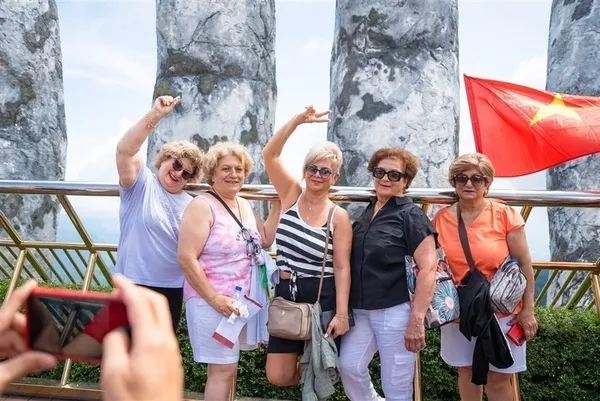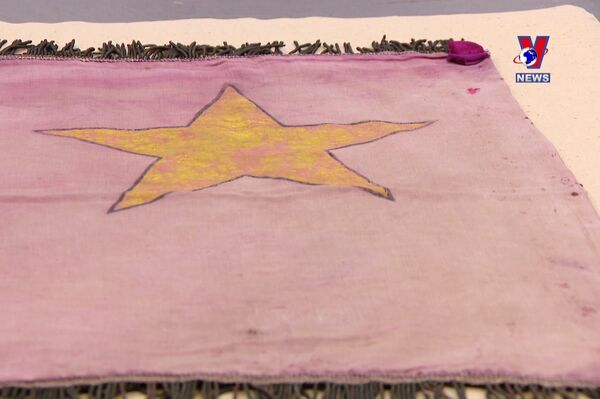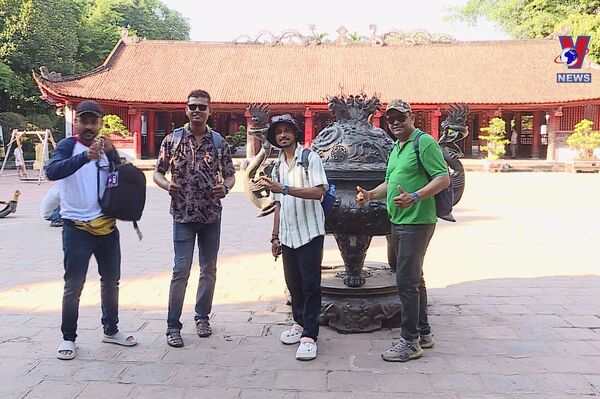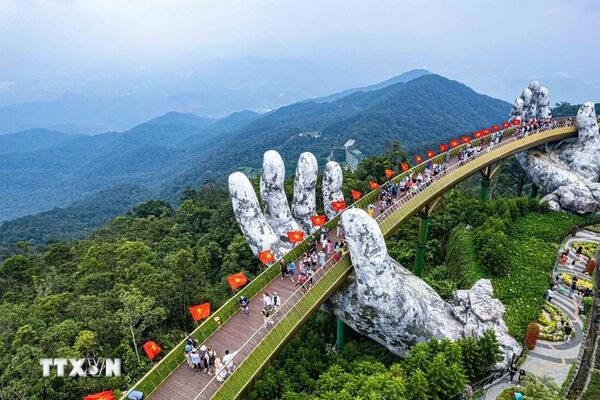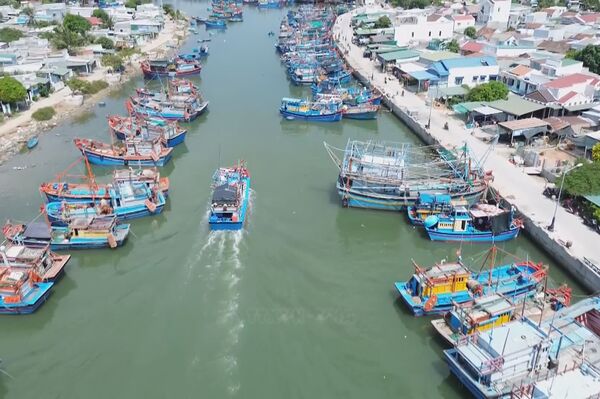 |
| On September 2, 1945, President Ho Chi Minh read the Declaration of Independence, giving birth to the Democratic Republic of Vietnam, now the Socialist Republic of Vietnam. (Photo: VNA) |
Hanoi (VNA) – On September 2, 1945, at Hanoi’s Ba Dinh Square, President Ho Chi Minh read the Declaration of Independence declaring the birth of the Democratic Republic of Vietnam (now the Socialist Republic of Vietnam).
The Declaration strongly demonstrates the Vietnamese people's aspiration for national independence and their determination to “mobilize all their physical and mental strength, and to sacrifice their lives and property in order to safeguard their liberty and independence."
With tight, sharp arguments, and strong and convincing expressions, the over-1,000-word Declaration of Independence is a solid legal basis that strongly affirms the national sovereignty of the Vietnamese people to the whole world. It lays the foundation for the establishment of a rule-of-law state with the goal of independence, freedom, and happiness.
It also illuminates Vietnam's revolutionary path in the cause of building a socialist rule-of-law State of the people, by the people and for the people, for a strong country, democracy, justice, and civilisation.
Nearly eight decades have passed, President Ho Chi Minh's views and thoughts on human rights, national rights, aspirations, and resilience to maintain independence and freedom shown in the Declaration remain topical and significant to nation-building and safeguarding at present.
 |
| A grand programme including a meeting, a military parade and marches take place in Hanoi on September 2, 2015 to celebrate the 70th anniversary of Vietnam’s August Revolution (August 19) and National Day. (Photo:VNA) |
The victory of the August Revolution, with the Declaration of Independence being read on September 2, 1945, created a new position and strength for the Vietnamese revolution to move forward steadily, gaining historic victories of great significance. Vietnam won the resistance wars against French colonialism and American imperialism, liberated the South, and unified the country.
It firmly adhered to the goal of national independence associated with socialism, building Vietnam into a strong country with prosperous people, and a democratic, fair and civilized society.
Particularly, in nearly 40 years of implementing the Doi moi (Renewal) process and international integration, Vietnam has made many great achievements in the fields of politics, economy, defence, security, foreign affairs, culture, and society.
The country has achieved high economic growth. Its Human Development Index (HDI) is among the highest in the world. Vietnam has been increasingly proactive and active in participating in the United Nations on human rights, assuming the role of a member of the UN Human Rights Council for two terms 2014-2016 and 2023-2025.
Vietnam also engaged in the process of building the ASEAN Human Rights Declaration and the ASEAN Intergovernmental Commission on Human Rights, as well as made active contributions to the ASEAN Commission on the Promotion and Protection of the Rights of Women and Children (ACWC), and the ASEAN Committee on Migrant Workers.
 |
| Import and export goods at Tan Cang Cat Lai in Ho Chi Minh City. (Photo: VNA) |
Moreover, Vietnam’s foreign affairs and international integration have become increasingly intensive, extensive and effective. Its international position and prestige continue to be enhanced.
Vietnam has established diplomatic relations with 193 countries around the world. It has joined and actively built the ASEAN Economic Community; and effectively participated in regional and international economic linkages at different levels.
Regarding development directions for the new period, the Resolution of the 13th National Party Congress identifies the need to “ensure to the highest level the interests of the country and the nation based on the fundamental principles of the UN Charter and international law, equality, cooperation, and mutual benefit".
Vietnam will strongly arouse the spirit of patriotism, the will of national self-resilience, the strength of great national unity, and the aspiration to develop a prosperous and happy country. It is necessary to promote socialist democracy and the combined strength of the entire political system and Vietnamese culture and people, nurture the people's strength, improve the quality of human resources, have breakthrough mechanisms to attract and make good use of talents, promote innovation, strongly apply science and technology, especially achievements of the fourth Industrial Revolution, creating a strong driving force for rapid and sustainable development.
The resolution also stresses the need to combine the power of the nation with the power of the time; promote the will of independence, self-reliance, and proactive and active integration, and improve the effectiveness of international cooperation; maximise internal resources, and take advantage of internal resources, with human resources being the most important.
79 years have passed, but the spirit of the Declaration of Independence that proclaimed the birth of the Democratic Republic of Vietnam still lives forever in the hearts of generations of Vietnamese people.
It survives because of not only its historical and legal value but also its noble humanistic value of human rights and the rights of the nation that President Ho Chi Minh cherished and devoted his whole life to.
The historical vow, "The entire Vietnamese people are determined to mobilize all their physical and mental strength, and to sacrifice their lives and property in order to safeguard their liberty and independence", will continue to guide the entire Party, army and people in the cause of building, protecting and developing the country today and in the future./.
